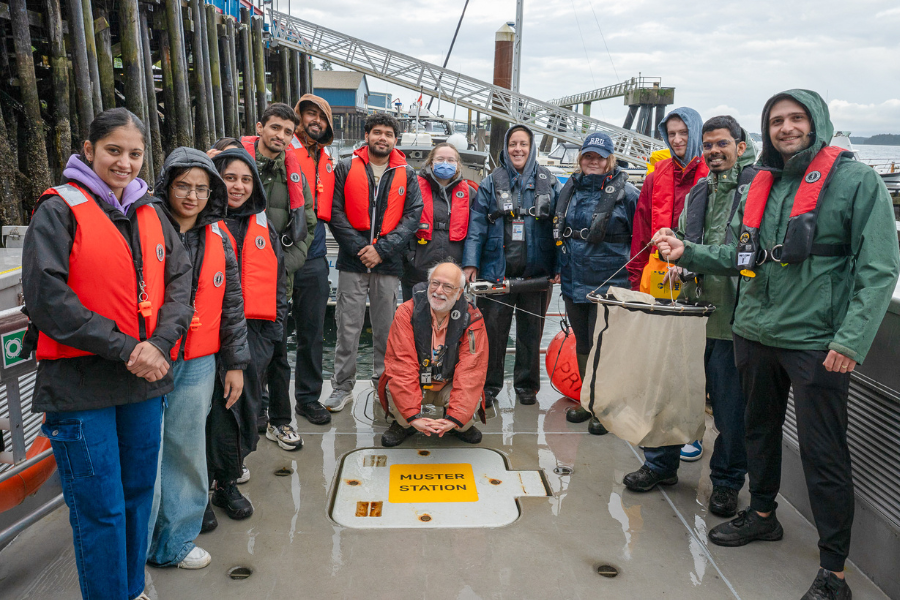
Prince Rupert, BC – Coast Mountain College’s Oceanography 208 students had the opportunity to work with some state-of-the-art research equipment while on a recent field trip to the Port of Prince Rupert (PRPA).
As part of the field trip, oceanography students were taken on a short boat trip in the Prince Rupert Port area on the Amwaal vessel, the Port’s harbour patrol vessel, during which they observed the research equipment in action. They learned about CTDs, which are electronic devices that measure a water body's conductivity, temperature, and depth to determine physico-chemical features of the ocean in that area. They also deployed plankton nets to collect samples of plankton from the area they visited, and they were introduced to other equipment used by the port’s environmental team.
CMTN Oceanography instructor Sandeep Beepat says that doing field trips like these is extremely valuable for students, because this is the only time they can see this type of equipment in action. Unlike labs and lectures, being on the ocean make students take into account several factors such as water currents, weather conditions, and conducting marine experiments on a moving vessel.
“It makes a huge difference when you have a student who experiences working in the field for the first time,” he says. “These hands-on experiences really help students to know if this is something that would suit them in their future career plans.”
After the field trip, the students were tasked with writing a field report, which included scientific notes of methodologies that are being applied and provide recommendations for potential improvements. The report mimics those required of many consultants in the workforce.
Kyla Macilroy, former CMTN student and current Environmental Technician for the Prince Rupert Port Authority, says “It was great to take the class out and experience what environmental monitoring in Prince Rupert can look like. As a former Applied Coastal Ecology (ACE) student, the field outings make the course. I was glad the team could provide a portion of that to this class and am excited to collaborate more in the future!”
Jason Scherr, Manager of Environmental Sustainability at PRPA adds that they have proudly partnered with CMTN since 2012 to collaborate on environmental monitoring and also provide students with direct exposure to the tools, technologies, and practices that are consistent with sustainable port operations.
Oceanography 208 introduces the history, methodology, and fundamental principles of physical, chemical, and geological oceanography. Topics in the course include the history and development of oceanography; ocean basin structure; salinity, temperature, and density distributions; and circulation.
Sandeep says he looks forward to collaborating with the Port Authority further in the future, notably for his oceanography field schools beginning in May 2026.
Learn more about the Applied Coastal Ecology Program in Prince Rupert on our website.
###
Media Contact:
Heather Bastin
Executive Director, External Relations
hbastin@coastmountaincollege.ca
250-635-6511 ext. 5494